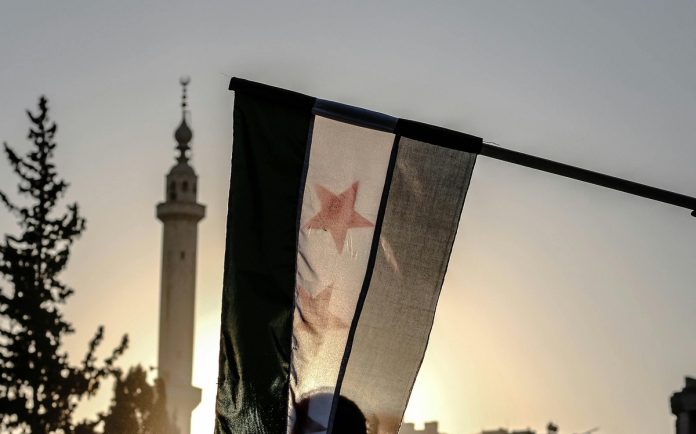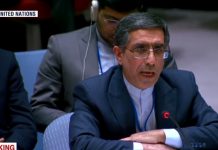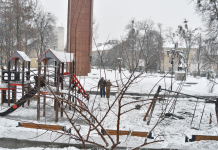DAMASCUS, Syria.Dec 18 — Ten days after the fall of Bashar al-Assad’s regime, the forces leading Syria’s transition are prioritising the drafting of a new constitution. According to Ahmed al Sharaa, leader of Hayat Tahrir al Sham (HTS) and also known by his nom de guerre Abu Mohammed al Jolani, “it is too early to talk about the form of the state in Syria before the constitution is drafted.” During a meeting with international media, Jolani addressed several issues concerning Syria’s future following the regime’s overthrow. He highlighted the severe persecution of Syrians, stating, “Detainees have been killed, crushed, burned, drowned, poisoned with chemical gases, and buried under barrel bombs.”
Hadi al-Bahra, head of the National Coalition of Syrian Revolutionary and Opposition Forces, confirmed that the coalition will dissolve once a comprehensive national conference is held to elect a constituent assembly representing all Syrians. Speaking to Syrian opposition broadcaster Syria TV, al-Bahra emphasised the importance of reintegrating dissidents of the former regime and leveraging their experience in rebuilding the state. He also noted the great challenges facing the revolution and the existence of parties trying to hinder its success.
Syria’s new Information Minister, Mohammad Alomar, in an interview with the German newspaper “Bild”, expressed hope that Syrian refugees with skills and experience currently living in Germany could return to help rebuild their country after the destruction caused by the Assad regime. He reassured that the new Syrian government would not discriminate against or persecute religious minorities, stating that guarantees have been given to all confessions and that the government will treat minorities according to the moral teachings of their holy religion.
The UN Security Council has called for the political process in Syria to be inclusive and led by Syrians. In a statement released yesterday, Council members, including Russia and the United States, stressed the need for Syria and its neighbours to refrain from any actions that could undermine mutual security. They reaffirmed their commitment to Syria’s sovereignty, independence, unity, and territorial integrity, and called on all states to respect these principles. The political process towards a new Syrian government must meet the legitimate aspirations of all Syrians, protect them, and enable them to determine their own future peacefully, independently, and democratically, the UN Security Council stated.
However, the situation on the ground remains tense. The Syrian National Army (ENS), linked to Turkey, has violated a ceasefire agreement by launching a surprise attack against the Syrian Democratic Forces (SDF), a US-supported Kurdish-majority coalition, in northern Syria. The Syrian Observatory for Human Rights (SOHR) reported clashes in which the SDF captured five ENS members. The attack was accompanied by intense air and ground bombardment as the ENS attempted to take control of the Qaraqozak bridge and the Tishrin dam, where the SDF shot down a Turkish drone and destroyed a Turkish radar vehicle.
A ceasefire agreement between pro-Turkish factions and Kurdish forces, mediated by the United States, came into force this morning. The SDF announced their readiness to establish a demilitarised zone in Kobane, near the Turkish border, with US supervision. SDF Commander Mazloum Abdi stated that this initiative aims to address Turkish security concerns and ensure permanent stability in the region.
In addition to these conflicts, the Israel Defence Forces (IDF) have launched approximately 498 air strikes on various provinces of Syria since December 8, the day Bashar al-Assad’s regime fell. According to SOHR, these air strikes targeted military bases of the former regime, aiming to destroy Syrian military capabilities that could threaten the security of Israel if the weapons fell into hostile hands.






